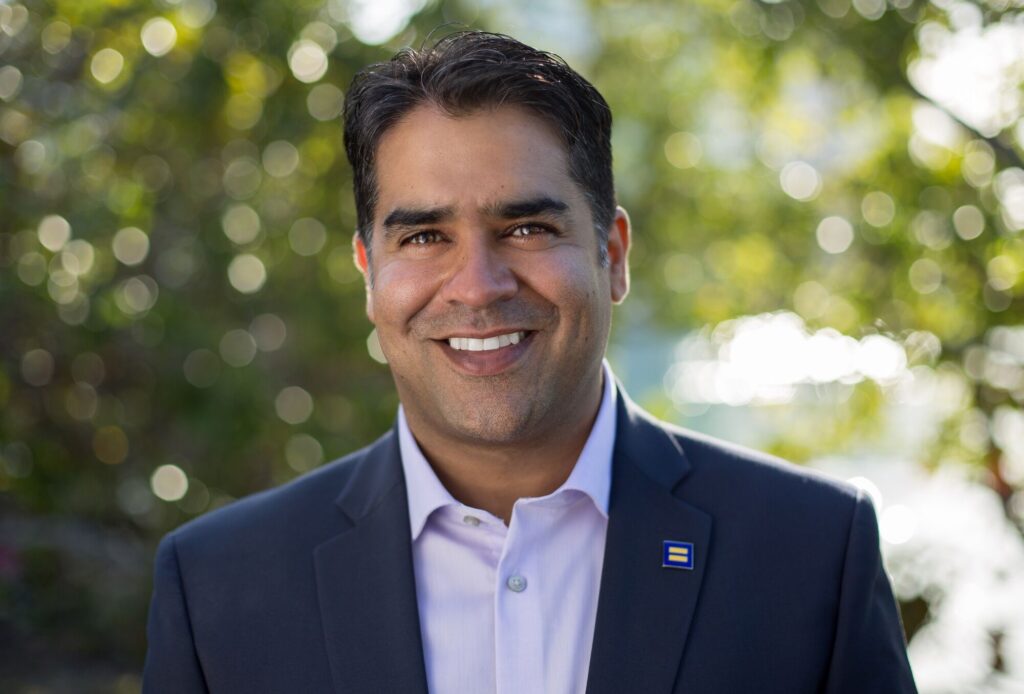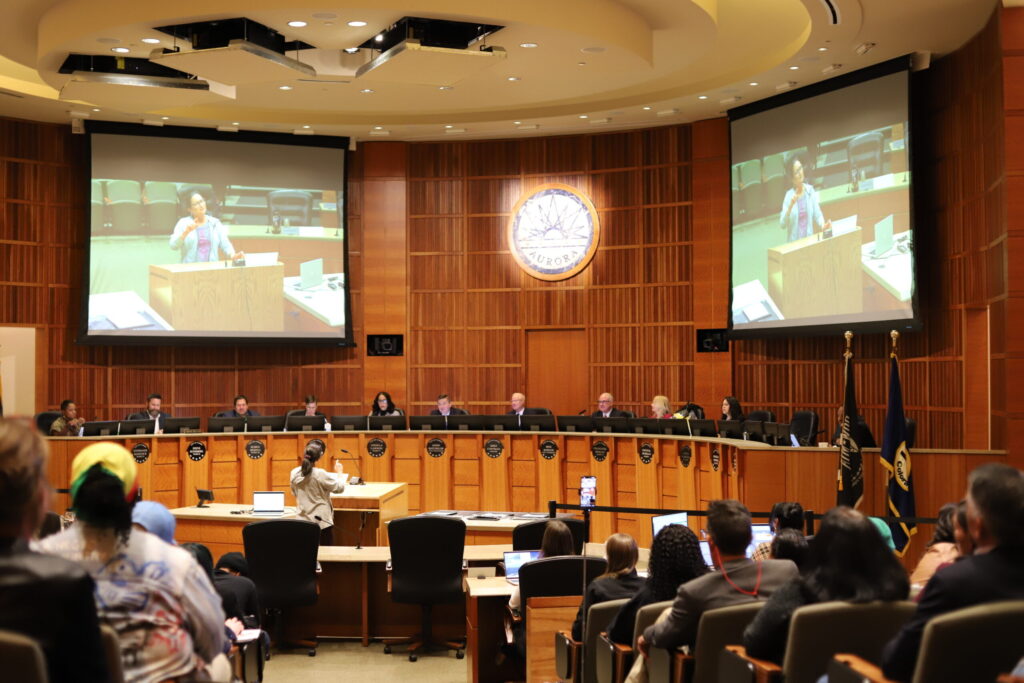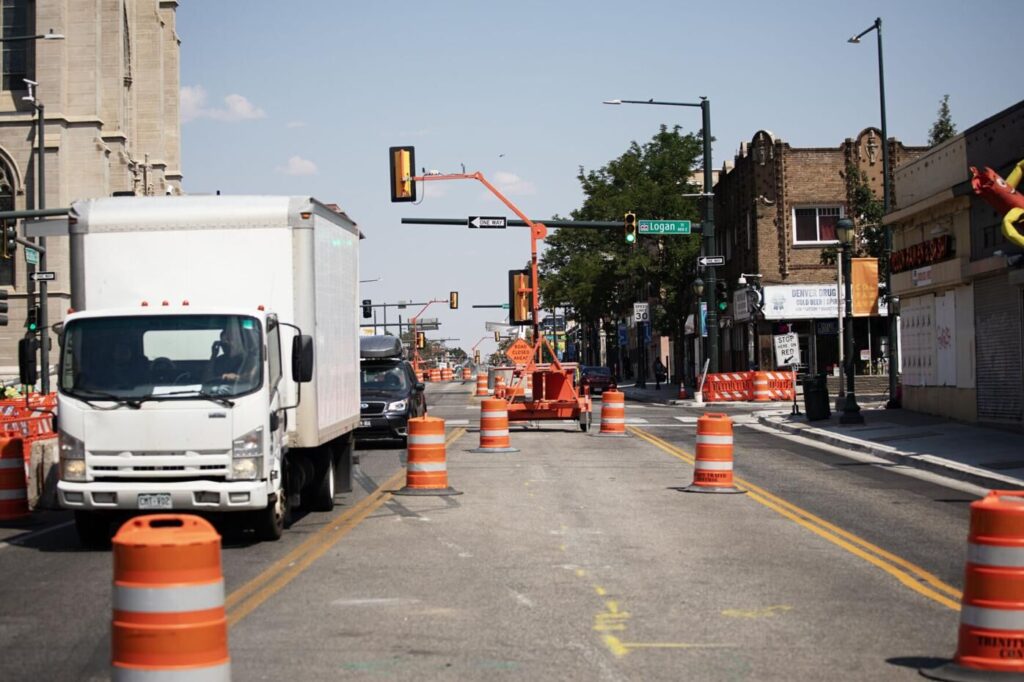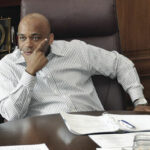RMGO heckles Owens on guns, DeGette dodges primary opponent
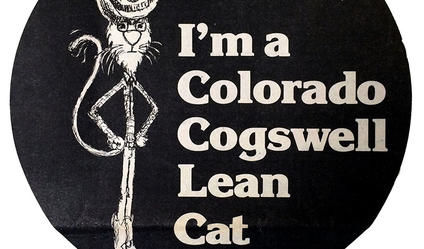
Fifteen Years Ago this week in The Colorado Statesman … Republicans should have had a routine state assembly and convention — there were no major statewide races splitting delegates, George W. Bush had sewn up the presidential nomination, and the GOP was safely in control of the congressional delegation and Legislature — but tensions were high, and Gov. Bill Owens was the target of much contention over guns, an issue that split delegates fiercely. “Perhaps the apparent dissatisfaction expressed by some delegates toward [Owens] should have been expected,” The Statesman reported. “Owens, who received support from the gun lobby when he was a candidate back in 1998, was the target of disdain by the same folks this weekend.” The Rocky Mountain Gun Owners organized heckling as Owens took the stage over his support for firearms restriction legislation in the wake of the Columbine shooting and claimed victory in the race for delegates to the Republican National Convention. “GOP does NOT mean Gun Ownership is Prohibited,” read “hunter orange” stickers worn by a good two-thirds of those in attendance at the state assembly, RMGO claimed in a commentary explaining its take on the gathering. “Owens’ reception by Colorado Republicans was chilly,” RMGO wrote, and when the governor began his speech, more than half of the 4,200 delegates and alternates raised signs that read, “No More Gun Control. Period.” Dozens of members of RMGO and the Tyranny Response Team approached the stage, shouting, “Liar!” and “No more gun control,” forcing Owens to cut short his speech when the chanting drowned him out. “Was this demonstration proper?” RMGO asked. “We can think of NO MORE APPROPRIATE PLACE to voice our displeasure with Gov. Owens’ views and his betrayal of his oath of office.” When it came time to elect RNC delegates, Owens placed fourth, behind three RMGO-backed candidates, and numerous establishment candidates failed to win tickets to the national convention, falling to RMGO’s pro-gun slate. “In essence, we cleaned their clocks,” RMGO crowed. …
… Democrats had some drama of their own at the party’s state assembly and convention, although most of the excitement was over the night before at the 1st Congressional District assembly, where Denver City Councilwoman Ramona Martinez mounted an 11th-hour primary challenge to U.S. Rep Diana DeGette. Her attempt “fell short, but the ramifications will likely last for a while,” The Statesman reporter surmised. Martinez backers forced a vote on a procedural move to suspend the rules and an earlier deadline for congressional hopefuls to declare their candidacy, winning 105 votes among the 253 delegates. “Martinez made her point that DeGette cannot afford to be so complacent,” The Statesman reported, noting that even Denver Democratic chair Sharron Klein voted to suspend the rules. But DeGette had her powerful supporters, including nomination speeches by Denver Mayor Wellington Webb and state Sen. Gloria Tanner, ultimately securing the chance to run for another term without a primary. In other congressional districts, U.S. Rep. Mark Udall won nomination unopposed to run for a second term in the 2nd District. Curtis Imrie of Chaffee County won the nomination outright in the 3rd District to challenge Republican U.S. Rep. Scott McInnis after candidate Reed Kelley dropped out at the last minute and potential candidate George Coulson didn’t show up to the congressional district meeting. No Democratic candidate emerged to take on 4th District incumbent Bob Schaffer, and potential candidate Ellen Duggan dropped out of a late bid to run against incumbent Republican Joel Hefley in the 5th District. But Democrats were hopeful that Ken Toltz might dislodge first-term U.S. Rep. Tom Tancredo in the roughly evenly divided 6th CD, even though the district’s unaffiliated voters had a history of swinging right.
Thirty-five Years Ago this week in The Colorado Statesman … On the eve of the Republican state assembly and convention (the former is for state-level candidates, the latter for national convention delegates), the hitherto wide field of potential challengers to US. Sen. Gary Hart had winnowed to its leanest numbers since the previous summer, when potential candidate after potential candidate had trooped to the podium in Adams County GOP chair Hal Schroyer’s backyard to discuss their plans for the Senate race. “There, amidst yellow and white umbrellas, brightly colored patio tables and dozens of folding chairs, potential candidates and party activists gathered for steaks, drinks and a look at the crop of hopefuls,” The Statesman reminisced. Hank Brown demurred, instead running for the 4th Congressional District seat, but Secretary of State Mary Estill Buchanan said she was in. Rancher and attorney John Cogswell proclaimed that he was ready to get in the race and predicted that Hart could be beaten and soon threw in his hat. Dick Davis, who lost a 1978 primary challenge to U.S. Rep. Jim Johnson, and Steve Duncan, both said they were considering a run but neither went all in. State Sen. Joel Hefley prodded Republicans to get behind a good candidate and avoid an expensive primary but waited nine months before making it official that he wouldn’t be running. Former state Rep. Bill Hybl said he wouldn’t run, a position U.S. Rep. Ken Kramer also adopted. Allen Lamb, the only officially announced candidate at the Schroyer picnic, distributed campaign literature and “glad-handed” plenty of Republicans who had never heard of him. Dick Plock, coming off a losing bid for the GOP gubernatorial nomination the previous year, said the timing was wrong for a Senate bid but that he was considering running for governor in a few years. State Rep. Jim Reeves said he was qualified to run but three months later dropped from contention. Jack Swigert, who lost the 1978 primary against eventual U.S. Sen. Bill Armstrong, asked for support and dallied with the race but then decided against it. Former state GOP chairman Carl Williams declined to run, urging Republicans to pick a candidate who could pay for his or her own campaign. “If they think we’re going to do it like Bill Armstrong did,” he said, “it just won’t happen.” Sam Zakhem “contrasted Hart’s voting record with Armstrong’s, yelled about patriotism, bilingual education and God,” and then cautioned against criticizing the Democrats too harshly. “They, too, are made in the image of God, and God doesn’t make anything dirty,” he said. Others who weighed runs included businessman Jim Morton, who ran briefly and then dropped out, Frank Lee, who stuck in the race, and, finally, Howard “Bo” Callaway, who won the backing of the Armstrong machine, jumped in. State GOP chair Phil Winn, “having to play daddy to all of them, cringed weekly as the list of Republican candidates went up and down,” The Statesman reported, adding that Winn had been pleading for candidates to avoid an expensive and divisive primary for nearly a year. “I won’t give you an order on who I think will make the ballot,” he said. “I don’t want to be accused of playing favorites — especially at this late date.”











